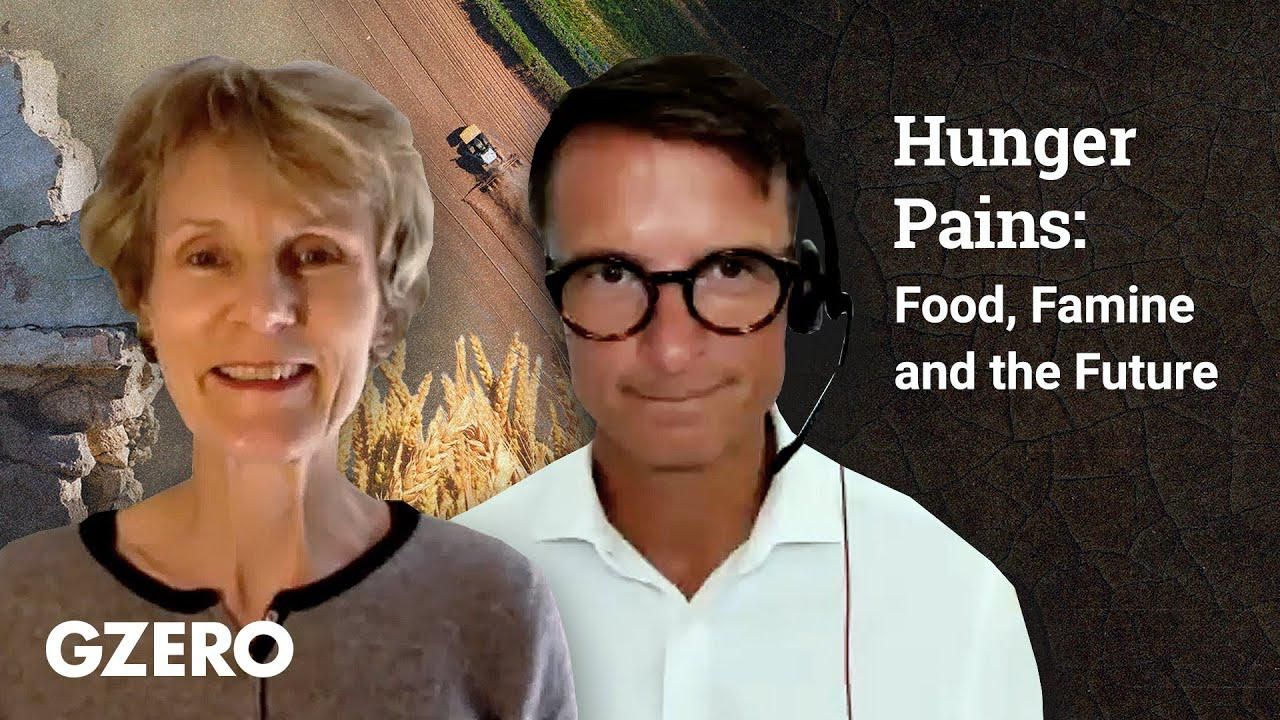Hunger Pains
Why we're in the current food crisis — and who could fix it

Why We’re in the Current Food Crisis — And Who Could Fix It | Hunger Pains | GZERO Media

Sylvain Charlebois knows a thing or two about food. He's a professor at Dalhousie University in Halifax, Canada, and tweets as @FoodProfessor. So, what does he think about the current global food crisis?
It started two years ago, when COVID disrupted supply chains, but the acute shortages that are driving up prices are more recent, he explained in a conversation for GZERO with Diana Fox Carney, Senior Advisor at Eurasia Group.
Why? Charlebois cites climate issues that hurt inventories, higher shipping costs due to the COVID hangover of weakened supply chains, Russia's war in Ukraine pushing prices up across the board, and "nationalistic hoarding" of staples by certain countries.
And it's going to get worse, especially in North Africa and the Middle East. So, what, if anything, can we do about it?
For Charlebois, the geopolitical wildcard is China, the only country with enough influence to change everything in a matter of weeks. The US could do more too, but in his view there's just too much politics for America to move on anything quickly.
Food prices, he predicts, will continue to rise for quite some time, because if this were an ice hockey match, we're probably only at the end of the first period.
For more, check out Hunger Pains, GZERO Media's special coverage of the world’s growing food crisis.
In this Quick Take, Ian Bremmer weighs in on the politicization of the Olympics after comments by Team USA freestyle skier Hunter Hess sparked backlash about patriotism and national representation.
100 million: The number of people expected to watch the Super Bowl halftime performance with Bad Bunny, the Puerto Rican superstar and newly minted Album of the Year winner at the Grammys.
Brazilian skiers, American ICE agents, Israeli bobsledders – this is just a smattering of the fascinating characters that will be present at this year’s Winter Olympics. Yet the focus will be a different country, one that isn’t formally competing: Russia.
Japanese Prime Minister Sanae Takaichi, president of the Liberal Democratic Party (LDP), appeals for a candidate during a street speech of the House of Representatives Election Campaign in Shintomi Town, Miyazaki Prefecture on February 6, 2026. The Lower House election will feature voting and counting on February 8th.
Japanese voters head to the polls on Sunday in a snap election for the national legislature’s lower house, called just three months into Prime Minister Sanae Takaichi’s tenure.